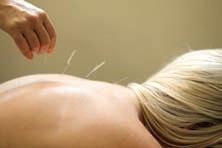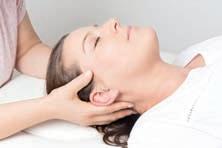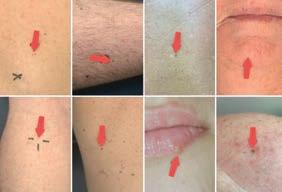
4 minute read
HEALTH
Magnesium can relax cramping muscles, aid sleep and calm restless legs, but, writes GARTH GREENWAY it can also do much more than that.
Magnesium helps build strong bones, balances excess calcium, and helps alleviate common problems such as muscle pain, migraines, menstrual pain and depression, helps with insomnia and increases energy levels.
Advertisement
It also has more medical research and scientific backing than most drugs on the market.
“Most doctors are wary of supplements that come with promises and miracle stories,” writes Dr Jay S. Cohen, author of The Magnesium Solution for High Blood Pressure. “Fortunately, magnesium comes with scientific evidence that dwarfs the evidence presented for many top-selling prescription drugs.”
Dr Carolyn Dean, author of 33 health books including The Magnesium Miracle, has researched thousands of Americans and found that calcium levels were several times the recommended amount, leading to a raft of health issues.
This imbalance lies in the changes to the food chain.
Our soils, farming techniques, lifestyle and eating habits having changed during the past 30 years.
The magnesium (ancient sea salts) has been stripped from the soils by constant use, superphosphate, fertilising and chemical use, leaving most of us magnesium deficient.
But the calcium supply keeps growing due to the promotion of the dairy industry over the past 30 years.
“This excess calcium then leaches out of the bones and gets into the joints, artery walls and inside the cells where it should not be,” Dr Dean says.
Oral forms of magnesium can get lost in the digestive system, with Dr Norm Sheely demonstrating that 60 per cent passes straight through our bodies and is often poorly absorbed.
Topically applied magnesium chloride does not, and is fast acting. The skin is the largest organ and magnesium can be absorbed more effectively than if taken orally.
Buderim Magnesium House has been specialising in providing strong effective magnesium chloride solutions for more than a decade, with fast-acting magnesium sprays, massage gels, moisturising lotions, bath and footbath flakes and in-house warm magnesium massages.
Garth Greenway is at Buderim
Magnesium House. Call 5476 5454 or visit rejuvehealth.com.au
Acupuncture Chiroprac c Massage Refl exology Naturopathy Herbal Medicine Kinesiology Counseling Integra ve Wellness Coaching




Take a deep breath, relax & reconnect

Gi Vouchers, Senior Longevity Vouchers & Essen al oils available
MELANOMA is among the top five causes of cancer death in Australia, claiming one life every five hours.
In fact, Australia leads the world in skin cancer cases, with around 800,000 diagnoses each year yet, 71 per cent have not had the recommended skin cancer check in the past year, and 39 per cent have never had a professional check.
“Many Australians don’t understand their risk of skin cancer, including potential deadly melanoma,” says Dr Alvin Prakash at the National Skin Cancer Centres.
“Skin cancer can affect anyone, occur anywhere on the body, and show no symptoms until an advanced stage. That is why it is so important to be aware of your own skin cancer risk.”
Ninety per cent of those diagnosed with skin cancer are over age 40. The risk is higher for anyone who has ever been severely sunburnt, used a solarium, worked outdoors, or had skin cancer before.
Other high-risk groups include people with multiple moles, fair skin or skin that burns easily, or light-coloured hair or eyes.
For the earliest skin cancer detection total body photography/mole mapping is recommended for these high-risk groups.
Melanoma can also run in the family. If your parent, sibling, or child has had melanoma, your own risk increases by 50 per cent. Men have a 60 per cent greater chance of developing the disease.
Experts recommend an annual head-to-toe skin cancer check, as picking up small changes early can significantly improve chances of successful treatment. In fact, 99 per cent of skin cancers are curable if detected and treated early.
“Early detection through regular full-body skin cancer checks is the best defence,” says Dr Prakash.
“Our mission is to detect skin cancers in the early stages to minimise complex, invasive, and expensive treatments, and ultimately save lives.”
Visit skincancercentres.com.au

BLOOD PRESSURE GOES UP FOR WOMEN
HIGH blood pressure or hypertension is becoming more prevalent among Australian women, particularly those aged 55 years and over.
A normal blood pressure level is less than 120/80 mmHg.
Blood pressure varies from person to person and can fluctuate throughout the day based on activities, but consistently having measures above normal may result in a diagnosis of high blood pressure or hypertension.
The higher the blood pressure level, the greater the risk of developing other health problems, such heart issues and stroke.
As women age, they may be more at risk of developing high blood pressure than men of a similar age.
Researchers have observed physiological differences in the cardiovascular systems of women, which include types and levels of hormones involved in regulating blood pressure.
Some of the warning signs and symptoms of high blood pressure and hypertension include severe headaches, nosebleed, fatigue or confusion, vision problems, chest pain, difficulty breathing, irregular heartbeat, blood in the urine, and pounding in your neck chest and ears.
Lifestyle factors that can help regulate high blood pressure include a diet high in potassium, moving more, controlling weight gain, keeping a lid on alcohol and quitting smoking. Visit: bloomsthechemist.com.au/ blood-pressure-evaluation










